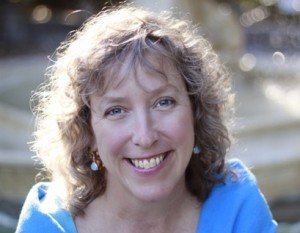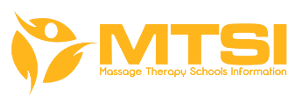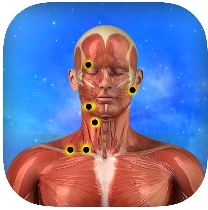
I am a licensed massage therapist, LMT in the state of Oregon and this is my 20th year in a full time private practice. I own and operate the Family Massage Education Center (FMEC) with one office employee and 7 independent contractors who are therapists and part-time instructors at the center.
We provide massage therapy, hydrotherapy, nutrition counseling, aromatherapy and exercise classes in TaiChi and Yoga and we are the only Massage Education Center that I currently know of in the world that offers daily classes for the public in massage for home use. Our massage classes are weekly ongoing series for everyone in singles, couples, pregnant partners and parent-baby courses.
Our website is HelloFMEC.com to see our revolving class schedules each month in Ashland, Oregon where I live and work. I am a Trainer with Infant Massage USA and internationally to give educator trainings in the pacific northwest, annually in Seattle, Portland and San Francisco and other towns and I travel to Haiti and Taiwan currently to do trainings.
2. Tell us why you chose to go into massage and at what point in your life did you decide to do so? What were you doing at the time? Where did you first hear about the massage career? What factors influenced your decision? What were you looking to get out of this decision?
Having worked in hospitals and clinics since I was 16 and then choosing a teaching career initially in 1978, I did not find Massage Therapy as a profession until 1995 though my mother massaged us and I thought it was a normal tradition of healthy care. When my son was born in 1986, he had a difficult birth.
A wonderful midwife showed me the infant massage for his abdomen that made a huge difference not only in his digestion, colic relief and sleeping ability but mine, too and we got so much better together that I wondered why my doctor had not recommended something so simple and effective. I went on from there nearly nine years later to massage therapy training and now my son is also a massage therapist for the past five years.
I became and infant massage instructor with IAIM in 1997 and a trainer in 2005 after teaching over 100 families. I believe massage is the primary traditional healthcare in the world, past, present and future and is very important to be easily accessible to everyone as therapy and as at-home care.
3. What were some of your questions and concerns before further pursuing your massage therapy goals? Talk about concerns with school and the profession itself.
There is a feeling that massage is now a medical profession and less of an everyday way of communication as a lost tradition in our culture. It is interesting to me that many older cultures around the world that have kept the traditions of proper healthy touch and massage with permission and respect in everyday life appear to have healthier people. My question is if we were teaching healthy, caring touch would we have a healthier, higher communicative, safer society?
4. What is your specialty and what are the top three contributing factors to your success today?
Yes, my specialty is in pregnancy and infant massage and also in teaching. In my everyday private practice, I utilize many modalities including Swedish, Indian, Thai, Tibetan (Vitaflex), Shiatsu, Myofascial, Cranio-sacral, Orthobionomy, Reiki, Aromatherapy, Hot stone, Deep tissue, Color therapy, Lymphatic and Polarity. My success in serving the public comes from the example of my parents, the support of my family and friends and their touch.
5. What do you like about your specialty? What do you like about what you do in general as a career? Why?
Babies superior health with daily massage as the cornerstone of their foundation is our future. My work to teach and do massage is my life. It is personal and professional and I am blessed that it is both and serves my health as well as others with massage.
6. What do you not like about what you do? Why?
Nothing except maybe that massage is evidence based in tradition as the oldest form of healthcare which the limited research of today shows it’s importance and yet many people seem to have lost the memory of it. It makes me wonder what has happened to our culture that often appears to lack this understanding and logic about the first human language of touch. Why aren’t we teaching it in every school? Perhaps we will be teaching it in massage schools in the future.
7. If there were three things you could change about your work or the industry as a whole what would they be? Why would you change them? What would you change them to?
a. We could teach positive, healthy touch in all schools with parent, teacher and student permission and respect to reduce and stop bullying, abuse and help improve communication, self care and health.
b. Let’s promote massage therapy as traditional healthcare instead of complimentary or alternative to the much younger and less tested techniques of drug therapy and surgery. And as such, insurance companies could save a lot of money for everyone by covering it first for everyone until they are more fully recovered to avoid the more expensive techniques of drugs and surgery whenever possible. It is sad to see people who come to massage therapy after surgery when it quite often could have potentially been a lot easier before hand to repair.
c. It seems important to give people the general information of the benefits of massage so they understand the difference it can make.
8. How long do you plan to practice and what do you plan to do after?
I can only imagine doing this all my life until I pass on and to pass on massage to everyone who enjoys it forever.
9. Do you currently have another job or business whether full time or part time? Tell us a bit more about it and how you are able to juggle that with your massage career?
No
10. What are some mistakes you made in your career pursuit that you’d like to warn other students about so they can learn from your experience and avoid it?
Avoid allowing spas, salons and medical professionals to diminish the importance of massage therapy as a medical profession and massage as an everyday practice and skill at home. We need to encourage both practices and fully support them in how they are valued. Professional Massage Therapists are to be respected for their time and work and given the time to do the work well without being overworked to burnout or to be taken advantage of for the profits of businesses.
11. What would you advise someone who is looking at massage therapy schools? What do you recommend they look for and how? How do you recommend they determine whether the school is the right one for them?
Interviewing the school by asking lots of questions about credentials, courses and comparisons to other schools is important in any profession.
12. What do you recommend for someone who wants to go to massage school but cannot afford it?
There is always a way to finance if one persists to ask and look.
13. What are your three biggest points of advice for an aspiring massage therapist today? What should they do/not do? What should they think about and consider?
How much can they remain open in their hearts and minds to the needs of others? How can they learn the best body mechanics to stay completely relaxed and at ease in this profession to be able to do their best for themselves and others? How much massage therapy do they need for themselves and how will they incorporate it into their own lives to stay healthy and be able to have a long and prosperous career?
14. Any open thoughts / comments – anything else that you’d like to share about yourself, the massage industry, profession, future, etc? If nothing, make one prediction for the future of massage?
“The doctor of the future will give no medicine but will interest his patients in the care of the human frame, in diet and in the cause and prevention of disease.” ~Thomas Edison
15. What is your passion outside of massage? What are your hobbies and interests which you pursue when you are not working? Tell us why you enjoy what you enjoy.
Music and massage, writing, photography, gardening and being outdoors with friends.
JoAnn Lewis, LMT, CEIM Trainer is the Director of the Family Massage Education Center, FMEC. She is a graduate of the University of Iowa where she obtained her BA in Education. She later went on to attend White River School of Massage (Bluecliff College). You can touch base with her here.








Leave a Reply